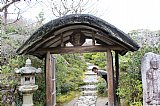Introduction
Language is a mirror that reflects the cultural intricacies of a society. Japanese, a language rich in history and tradition, offers a unique perspective on time through its days of the week. Understanding how the Japanese language defines and represents the days of the week provides insight into their cultural values and daily rhythms. In this post, we'll delve into the fascinating world of the days of the week in Japanese and the cultural significance they hold.
The Days of the Week in Japanese:
In Japanese, the days of the week are known as "曜日" (yōbi), a term that translates to "day of the week." Each day is associated with a celestial body, reflecting the influence of ancient Chinese astrology on Japanese culture. Let's explore the individual days and their corresponding meanings:
- 日曜日 (Nichiyōbi): Sunday Sunday is "日曜日" in Japanese, where "日" (nichi) represents the sun. As with many cultures, Sunday is associated with rest and relaxation, mirroring the day of rest traditionally observed in various parts of the world.
- 月曜日 (Getsuyōbi): Monday "月曜日" translates to Monday. "月" (getsu) symbolizes the moon, connecting the start of the week with the lunar cycles. In Japanese culture, the moon is often associated with reflection and tranquility.
- 火曜日 (Kayōbi): Tuesday Tuesday is "火曜日" in Japanese, with "火" (ka) signifying fire. Fire embodies energy and action, making it an appropriate representation for a day that often marks the beginning of the workweek.
- 水曜日 (Suiyōbi): Wednesday Wednesday is called "水曜日" in Japanese, with "水" (sui) meaning water. Water is often associated with flexibility and change, reflecting the midpoint of the workweek when plans might be adjusted.
- 木曜日 (Mokuyōbi): Thursday Thursday is known as "木曜日," where "木" (moku) represents wood. Wood symbolizes growth and expansion, mirroring the progress made during the week as people work toward their goals.
- 金曜日 (Kinyōbi): Friday Friday translates to "金曜日" in Japanese, with "金" (kin) representing metal or gold. Metal is associated with strength and durability, reflecting the effort put into wrapping up tasks before the weekend.
- 土曜日 (Doyōbi): Saturday Saturday is called "土曜日" in Japanese, with "土" (do) signifying earth. Earth is connected to grounding and stability, making Saturday a day for relaxation and connection to nature.
Cultural Significance:
The Japanese days of the week reflect the nation's reverence for celestial bodies and the natural world. This connection underscores the importance of balance, harmony, and respect for the rhythms of nature in Japanese culture. The days are more than just markers of time; they weave a narrative that ties the modern world to ancient traditions.
Exploring the days of the week in Japanese reveals a cultural tapestry woven from celestial symbolism and historical influence. Each day carries with it a unique connection to the natural world and reflects the Japanese value of harmony between the temporal and cosmic realms. By understanding the linguistic and cultural nuances of the days of the week, we gain a deeper appreciation for the Japanese way of viewing time and life itself.















